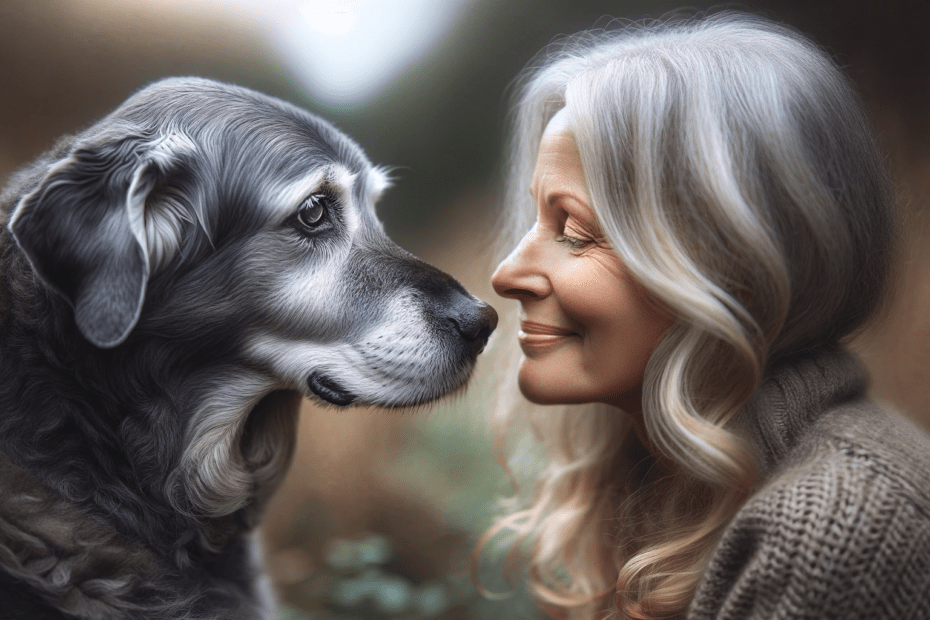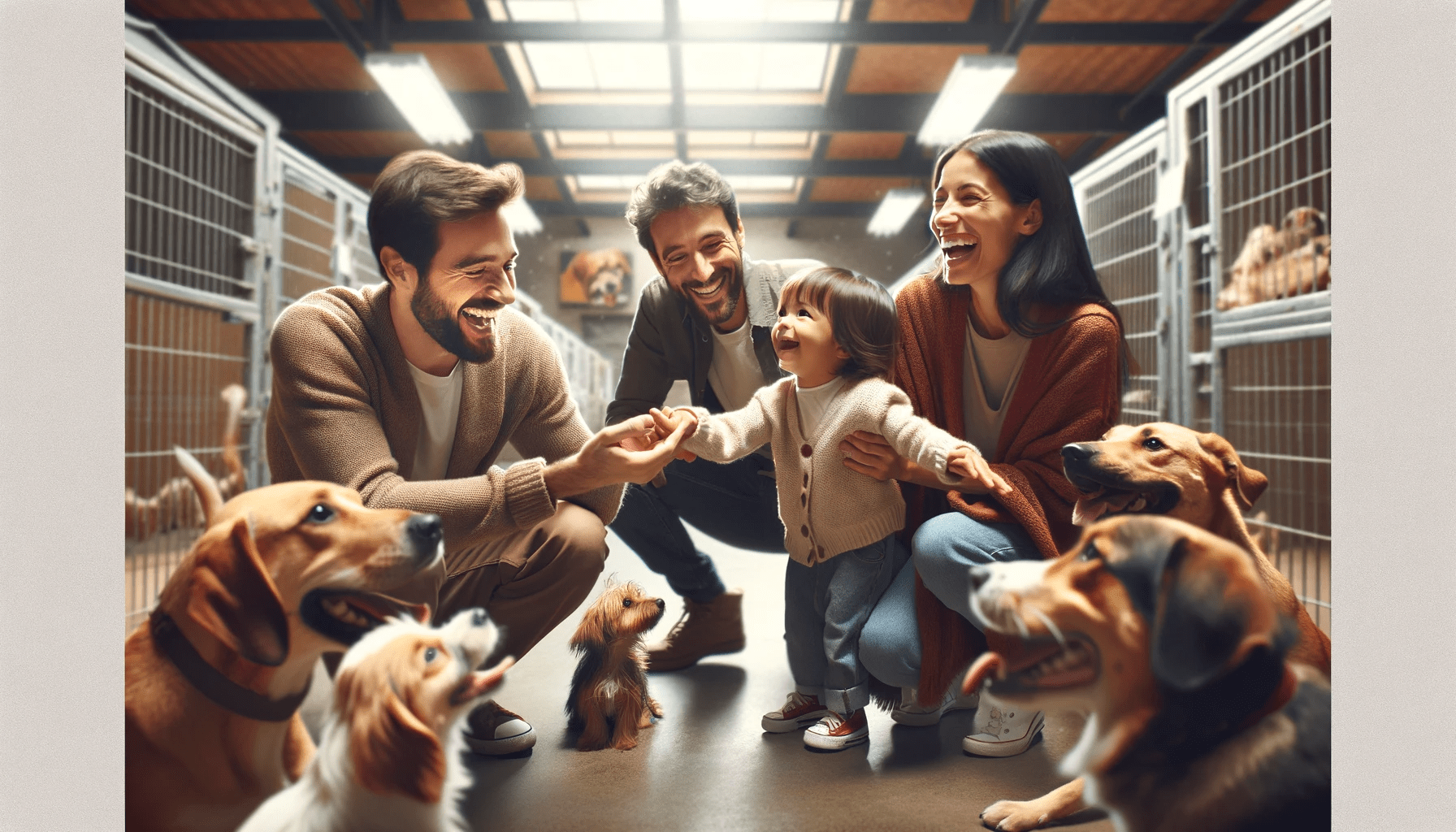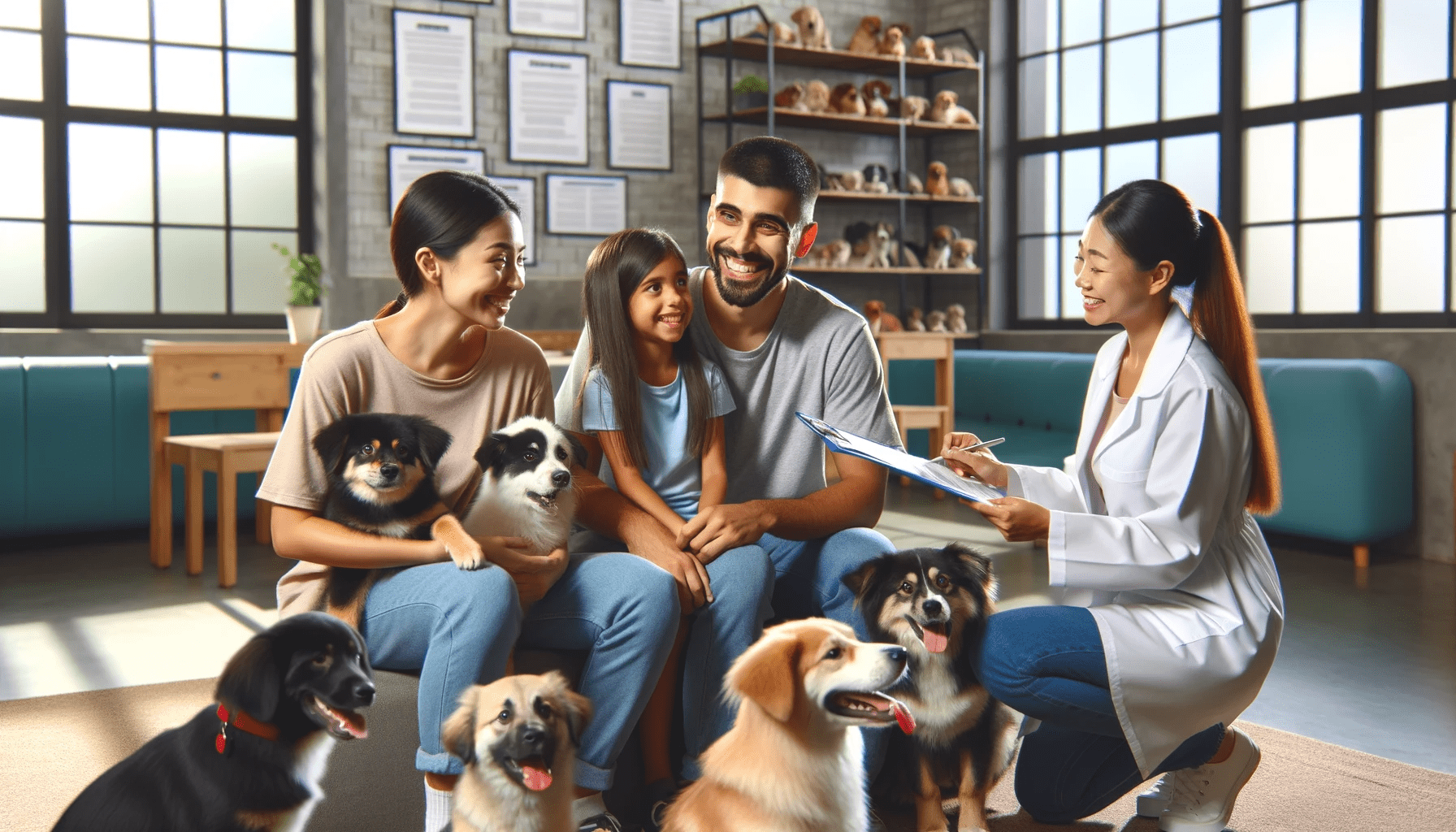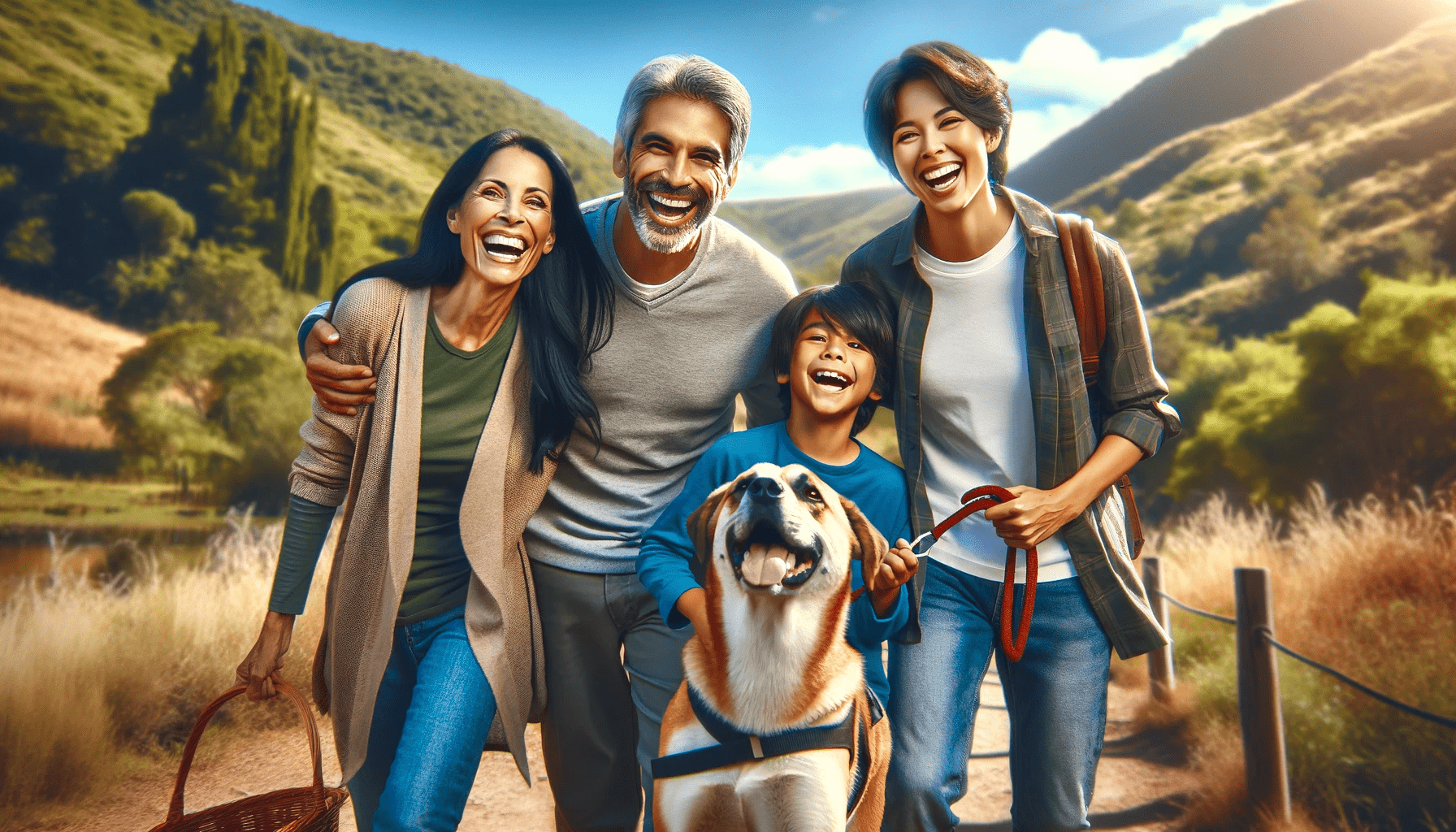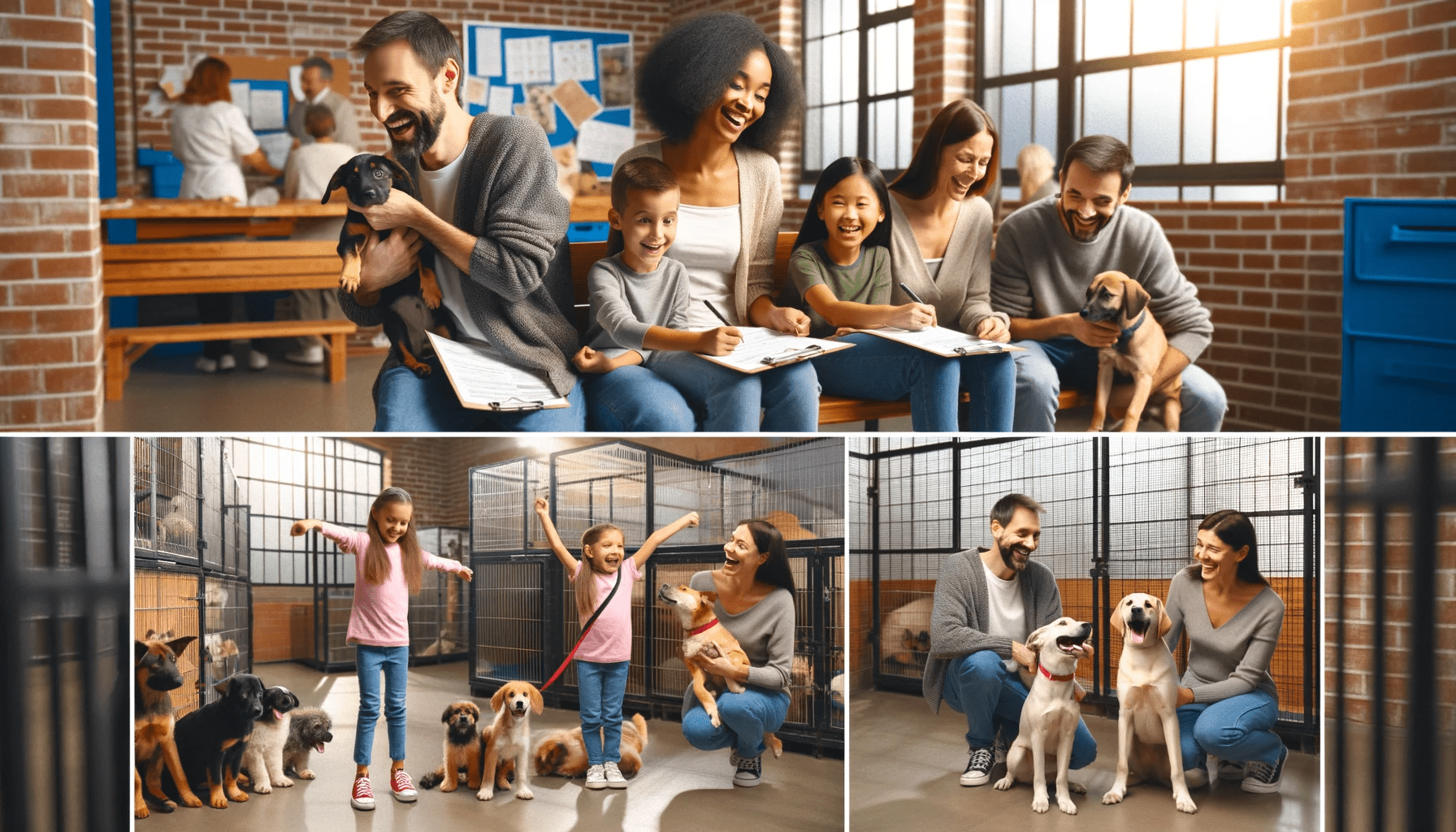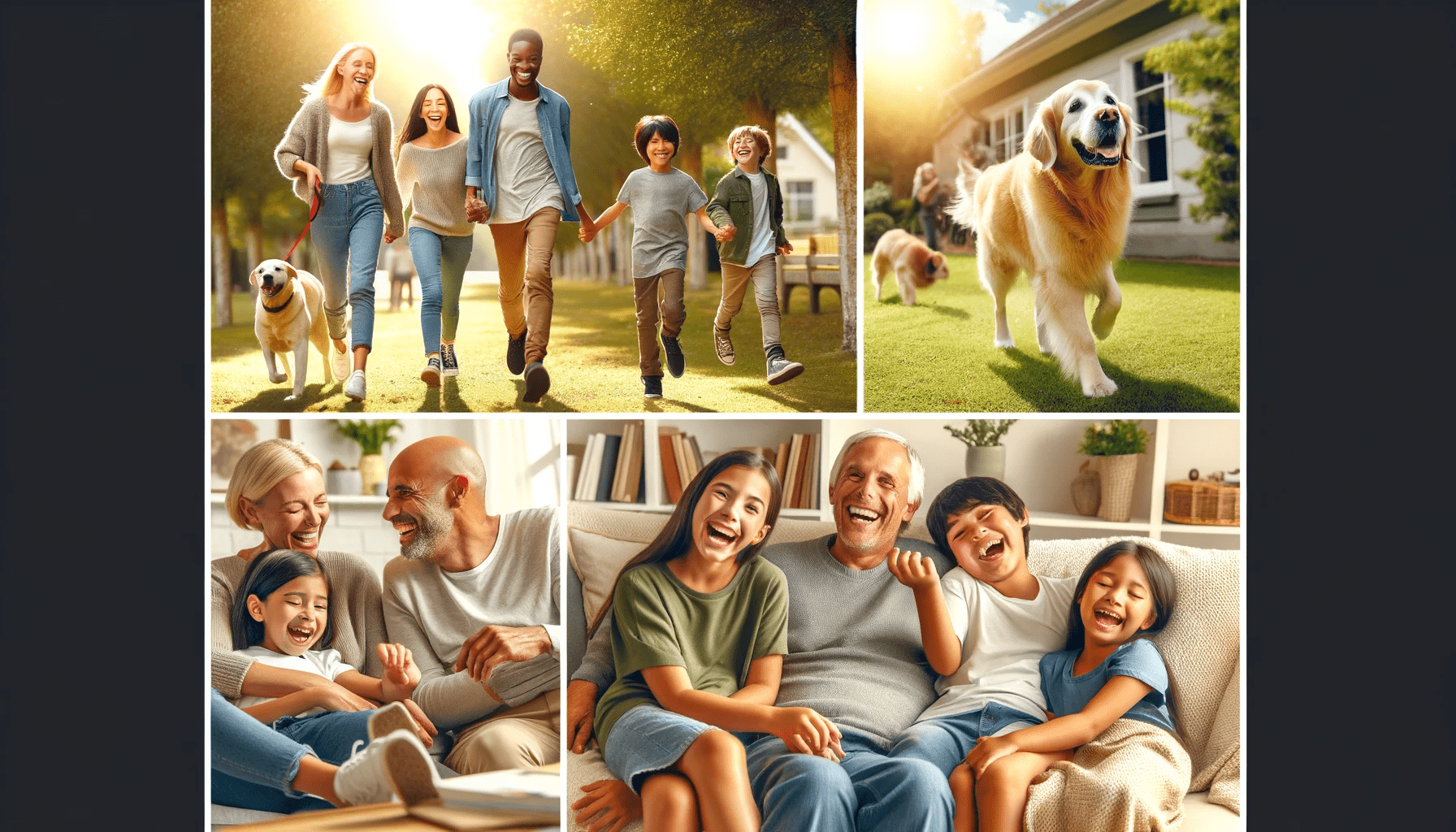Are you considering adopting a furry friend? Look no further than an older dog. Adopting an older dog not only brings warmth and companionship into your home, but it also builds a deep sense of trust.
With lower energy levels and established personalities, these dogs offer a smoother transition into your life. Plus, their easier training and behavior modification make for a stress-free experience.
Discover the authentic advantages of adopting an older dog and unlock a world of unconditional love and loyalty.
Key Takeaways
- Lower energy levels and exercise needs
- Established personality and temperament
- Easier training and behavior modification
- Instant companionship and bonding
Lower Energy Levels and Exercise Needs
When adopting an older dog, you'll discover that their lower energy levels and exercise needs can work in your favor. Senior companions bring a unique dynamic to your household, and their calmer demeanor can be a perfect fit for individuals or families with a more relaxed lifestyle. Unlike energetic puppies, senior dogs are content with shorter walks and less vigorous playtime. This lower activity level can be advantageous for those who may not have the time or physical ability to keep up with a high-energy dog.
In addition to their lower energy levels, adopting an older dog can also have significant health benefits. Older dogs are often already house-trained and have a better understanding of basic commands, making the transition into your home smoother. Furthermore, studies have shown that owning a pet can have positive effects on your health, such as reducing stress levels and improving cardiovascular health. Senior companions can provide comfort and emotional support, which can be particularly beneficial for individuals dealing with loneliness or depression.
Established Personality and Temperament
When it comes to adopting an older dog, one of the key advantages is the established personality and temperament they bring to the table. Unlike puppies who are still developing, older dogs have already formed their behavior patterns and consistent temperament traits.
This means you can have a better understanding of what to expect in terms of their behavior, allowing you to make an informed decision about whether their personality aligns with yours.
Trustworthy Behavior Patterns
Adopting an older dog will provide you with the advantage of a well-established personality and temperament, ensuring a trustworthy companion. Older dogs have had more time to develop their behavior patterns, which means you can have a better understanding of their true nature right from the start.
This allows you to build a trust-based relationship with your furry friend. Unlike puppies, older dogs have already gone through the stage of testing boundaries and learning what's acceptable behavior. They've developed a sense of loyalty and are more inclined to follow rules and please their owners.
Consistent Temperament Traits
You can count on an older dog to maintain consistent temperament traits, thanks to their established personality and temperament. Here are three reasons why adopting an older dog can provide emotional stability and lifelong companionship:
- Predictable behavior: Older dogs have already developed their own unique personalities and temperaments, which means you can have a clearer understanding of their behavior patterns. This consistency allows you to better anticipate their reactions and adapt your approach accordingly.
- Emotional maturity: Older dogs have had more life experiences and have likely overcome various challenges. This emotional maturity results in a calmer and more stable demeanor, making them excellent companions for individuals seeking a soothing presence in their lives.
- Bonding potential: Older dogs have a strong desire for companionship and are more likely to form deep and lasting connections with their owners. Their loyalty and devotion are unwavering, providing you with a lifelong companion who'll be there for you through thick and thin.
Easier Training and Behavior Modification
Training and modifying the behavior of an older dog becomes simpler and more effective when you work with their existing habits and experiences. Older dogs have already developed a routine and have a better understanding of the world around them. This means that they're more receptive to learning new commands and behaviors. With their years of experience, they're also more likely to pick up on cues and signals, making it easier for you to communicate your expectations.
One of the advantages of working with an older dog is that progress can be made quickly. They've already gone through the puppy stage, where they were learning the basics of house training and obedience. This means that you can focus on more advanced training techniques, such as leash walking or tricks, and see results faster.
Effective communication is key when training and modifying the behavior of an older dog. By understanding their background and previous experiences, you can tailor your training methods to suit their specific needs. For example, if your older dog has a history of fear or aggression, you can use positive reinforcement techniques to build trust and confidence.
Reduced Destructive Chewing and Housebreaking
Reduced destructive chewing and housebreaking can be easier with an older dog. When you bring home a mature canine companion, you'll likely find that they've already outgrown the destructive chewing phase. Here are three reasons why adopting an older dog can make housebreaking a breeze:
- Reduced Separation Anxiety: Older dogs have typically developed a sense of independence and are more comfortable being alone for longer periods. This means they're less likely to engage in destructive behavior, such as chewing furniture or shoes, when left alone. Their reduced separation anxiety allows for a smoother transition into a well-behaved household.
- Improved Socialization Skills: Older dogs often come with a solid foundation of socialization. They've already learned how to interact with humans, other dogs, and various environments. This makes it easier to introduce them to your home and teach them appropriate behavior, including where to go potty.
- Quicker Learning: Older dogs have a better attention span and are more receptive to training. They've already learned basic commands and have a better understanding of what's expected of them. With their improved cognitive abilities, they can quickly grasp the concept of housebreaking and adapt to your routines.
Instant Companionship and Bonding
When adopting an older dog, you'll quickly experience the joy and fulfillment of instant companionship and bonding. These dogs have already gone through their puppy phase and are ready to form a strong connection with you. The emotional support they provide is invaluable and can greatly enhance your well-being.
Older dogs, having already lived with humans, understand the concept of companionship and are eager to be a part of your life. They often form a deep bond with their new owners, offering unwavering loyalty and affection. This instant connection can provide a sense of comfort and security, especially for those who may be feeling lonely or going through difficult times.
The companionship and bonding that come with adopting an older dog can bring immense joy to your life. They become your constant companion, always by your side, providing comfort and emotional support. The trust that develops between you and your older dog forms the foundation for a lifelong friendship.
Studies have shown that owning a dog can have numerous benefits for your mental and emotional well-being. The companionship of an older dog can reduce stress, alleviate symptoms of depression and anxiety, and even lower blood pressure. Their presence alone can bring a sense of calm and happiness to your everyday life.
Avoiding the Puppy Phase
By adopting an older dog, you can skip the challenges of training a puppy and instead focus on building a strong bond based on trust and companionship. Avoiding the puppy phase can be a wise choice for many reasons. Here are three reasons why adopting an older dog can be beneficial:
- Socialization opportunities: Older dogs have usually already been socialized and are more comfortable in various environments. This means you can take them out and about without worrying about them being overwhelmed or causing a scene. They're more likely to be calm and well-behaved in different situations, allowing you to enjoy outings together and introduce them to new people and other animals.
- Bonding with an older dog: Older dogs often have a more settled temperament, making it easier for you to connect with them on a deeper level. They've already developed their personalities, making it easier for you to understand their needs and preferences. By adopting an older dog, you can focus on building a strong bond based on trust and companionship from the very beginning.
- Training is usually easier: Older dogs have often already learned basic commands and have a better understanding of household rules. While they may still require some training and adjustment to your specific routines, adopting an older dog can save you the time and effort that comes with training a young puppy.
Fulfilling a Senior Dog's Final Years
Make the most of your time with a senior dog by embracing the opportunity to provide them with a fulfilling and comfortable final chapter in their life. Aging gracefully is a natural part of life, and our senior dogs deserve to spend their golden years in peace and contentment. As our furry friends get older, their bodies and minds may start to show signs of wear and tear. It's our responsibility as pet owners to ensure that they receive the care and support they need to age with dignity.
Providing comfort to our senior dogs is crucial in helping them navigate the challenges that come with old age. This can include making adjustments to their environment, such as providing soft bedding or ramps to help them move around more easily. Regular visits to the veterinarian can also help identify and manage any age-related health issues they may be experiencing.
In addition to physical comfort, it's important to meet their emotional needs as well. Spending quality time with them, engaging in gentle exercise, and providing mental stimulation can all contribute to their overall well-being. This can include puzzle toys, interactive games, or simply taking them on leisurely walks in their favorite places.
Frequently Asked Questions
What Are Some Common Health Issues or Concerns That May Arise When Adopting an Older Dog?
When adopting an older dog, it's important to be aware of potential health issues. Common concerns include arthritis, dental problems, and cognitive decline. Senior dog care and training can help address these issues and ensure your furry companion's well-being.
How Can Adopting an Older Dog Benefit Families With Young Children?
Adopting an older dog can benefit families with young children by building empathy and teaching responsibility. Older dogs often have a calm temperament and are more patient, making them great companions for kids.
Are There Any Specific Breeds That Are More Commonly Available for Adoption as Older Dogs?
Some specific breeds, like Labradors and German Shepherds, are commonly available for adoption as older dogs. They may have common health issues, such as arthritis or dental problems, but with proper care, they can still make wonderful companions.
What Are Some Tips for Introducing an Older Dog to a Household With Existing Pets?
Introducing an older dog to existing pets can be challenging. Here are some tips: gradually introduce them in a neutral space, supervise interactions, provide separate spaces, and give each pet individual attention and love.
Can Adopting an Older Dog Be More Cost-Effective Than Adopting a Puppy?
Adopting an older dog can indeed be more cost-effective than adopting a puppy. They often come already trained, saving you money on training classes. Plus, their lower energy levels mean less expensive exercise and grooming needs.
Conclusion
In conclusion, adopting an older dog offers numerous authentic advantages.
Their lower energy levels and exercise needs make them a perfect companion for those with a more relaxed lifestyle.
With an established personality and temperament, they provide a sense of trust and stability.
Training and behavior modification are easier, minimizing destructive chewing and housebreaking issues.
Instant companionship and bonding create a special connection.
By adopting an older dog, you not only avoid the challenges of the puppy phase but also provide a fulfilling final chapter in a senior dog's life.
